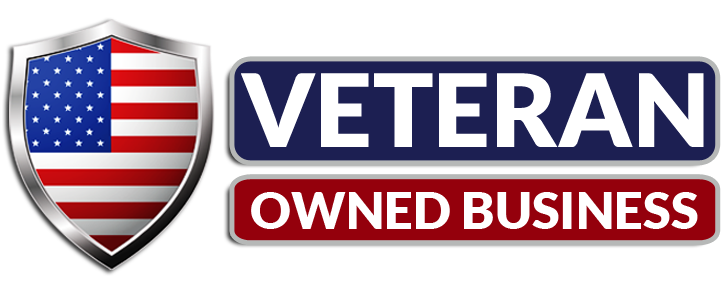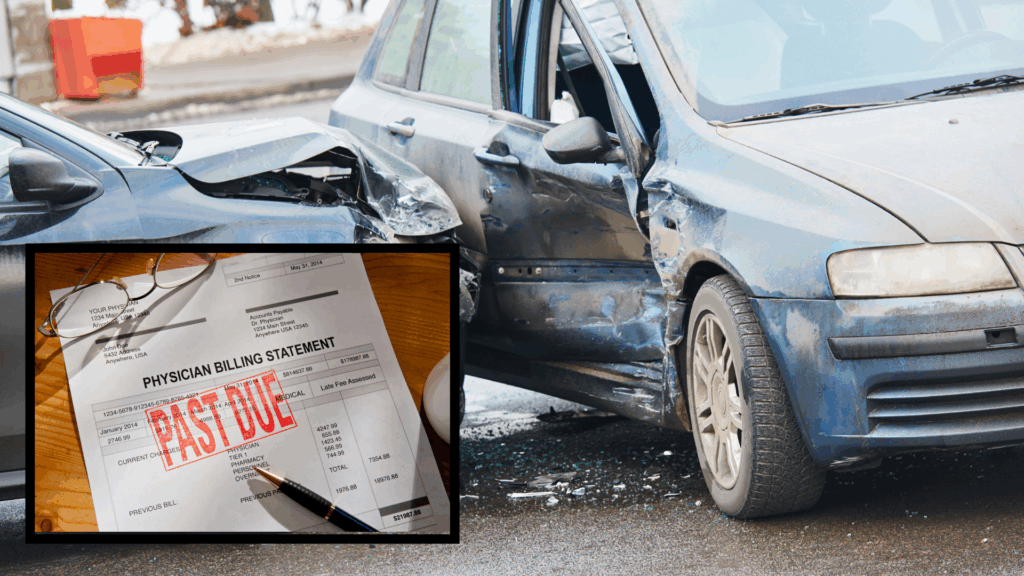When you’re injured in a car accident in Denver, your first priority is your health — getting emergency care, attending follow-up appointments, and starting the road to recovery. But while you’re healing, another challenge grows in the background: a flood of medical bills, insurance statements, and sometimes lien notices begin to accumulate.
The cost of ambulance rides, ER visits, surgery, diagnostic scans, physical therapy and other rehabilitative treatment, and prescriptions can add up quickly. In most cases, Colorado law does not require the at-fault driver or their insurer to pay these bills as they come in. That means you could have thousands — even tens of thousands — in medical debt before your case resolves.
This guide will help you understand exactly how to handle medical bills & liens after a Denver crash, including:
- Your responsibilities under Colorado law
- How medical payments coverage (MedPay) works
- Strategies for utilizing health insurance
- Understanding and negotiating medical liens
- Protecting yourself from collections
- Planning for future medical costs
- How an attorney can protect your financial interests
Using Medical Payments Coverage (MedPay)
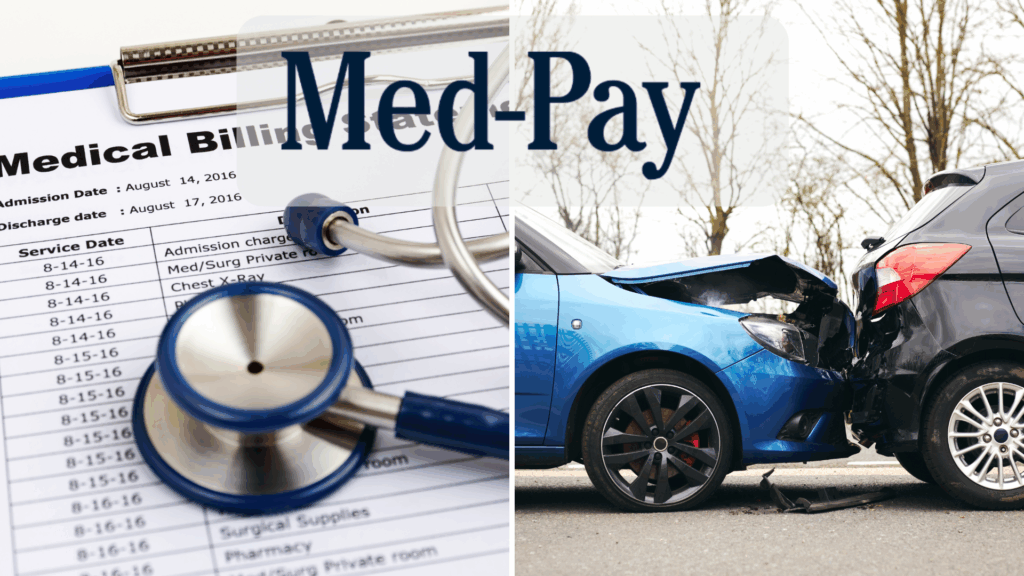
Unless rejected in writing, Colorado auto insurance policies must include at least $5,000 in Medical Payments Coverage (MedPay). This coverage is available to you and your passengers regardless of fault and is designed to help cover accident-related medical expenses.
Benefits:
- Pays regardless of fault
- Very inexpensive additional coverage
- No deductible or copay
- Can be used alongside health insurance
- Covers a wide range of services, including ambulance, ER care, and follow-up visits
After an Accident, You Should:
- Review your policy declarations page to confirm MedPay limits.
- Provide MedPay details to your medical providers.
- Submit bills promptly to your auto insurer.
- Track usage to know when funds are exhausted.
Utilizing Health Insurance

When MedPay is exhausted, your health insurance becomes the primary payer for accident-related care. This transition can feel overwhelming, especially if you’re juggling multiple providers, frequent treatment appointments, and piles of paperwork. Understanding how health insurance fits into your accident recovery plan is essential.
Subrogation: Most health insurance policies include a subrogation clause, meaning that the health insurance plan has the right to be reimbursed from your settlement for accident-related care they paid for. A skilled attorney can often negotiate substantial reductions in these reimbursements, allowing you to keep more of your settlement.
Best Practices:
- Notify Providers: Always inform your doctors, hospitals, and therapists that your injuries are accident-related so they code your treatment properly and bill the correct insurer.
- Stay In-Network: Using in-network providers minimizes out-of-pocket costs and maximizes coverage.
- Organize Your EOBs: Keep all Explanations of Benefits (EOBs) in a dedicated folder or digital file. These documents help track what’s been billed, paid, or denied.
- Appeal When Necessary: If your insurer denies coverage for certain treatments, you have the right to appeal. An attorney can help present medical evidence to overturn denials.
Understanding Colorado Law on Medical Liens

A medical lien is a legal claim by a healthcare provider or insurer against your eventual settlement, designed to ensure they’re repaid for accident-related care that they either provided or paid for. These liens can be held by hospitals, private doctors, physical therapists, and even diagnostic facilities.
Your attorney can help you to:
- Dispute Invalid Liens: Check for incorrect patient information, or inflated charges.
- Request Reductions: Argue for reductions, especially in cases where recovery is limited.
- Contest “unreasonable billing” when a health care provider charges more than what is considered reasonable for a procedure or treatment.
Protecting Yourself from Collections

The threat of collections adds additional emotional stress during an already difficult time. Once a bill goes to collections, it can impact your credit score and increase financial pressure.
Attorney Actions:
- Request Billing Holds: Your attorney can notify providers that you have a claim and request that they pause collection efforts until your claim is resolved.
- Dispute Errors: Mistakes on medical bills are common. Attorneys can identify and challenge duplicate charges or services you didn’t receive.
- Time Payments with Settlement: Aligning payment schedules with your settlement ensures you’re not asked to pay large amounts before funds arrive.
Pro Tip: Maintain a spreadsheet of all medical bills, including provider names, dates of service, services provided, amounts due, and payment status. This organized approach makes it easier to dispute errors and avoid missed payments and also supports lien reduction efforts.
Planning for Future Medical Costs

A settlement in an accident case must account for both current and future medical expenses — especially in cases involving serious or long-term injuries. Settling without factoring in the cost of future medical care can leave you paying significant bills out-of-pocket.
Examples of Future Medical Costs:
- Surgeries: Follow-up operations or procedures related to your initial injury.
- Long-Term Therapy: Ongoing physical, occupational, or speech therapy.
- Pain Management: Regular injections, medications, or alternative therapies.
- Assistive Devices: Wheelchairs, prosthetics, or home modifications.
Why It Matters: Once a settlement is finalized, you cannot return to the at-fault party or their insurance company for additional compensation. By working with medical experts to create a life care plan, your attorney can ensure that your settlement includes compensation for both your immediate and anticipated needs.
How a Denver Car Accident Attorney Helps
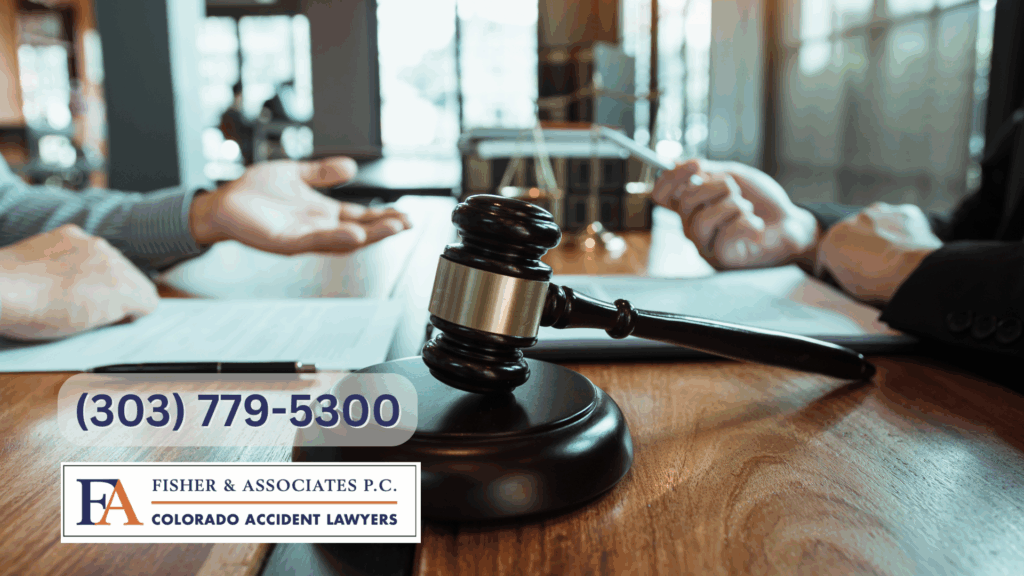
An experienced Denver car accident attorney plays a critical role in protecting your financial well-being after a crash. Their work goes far beyond simply filing paperwork — they serve as your advocate, strategist, and negotiator from the first day of representation until your case is resolved.
Identify All Coverage Sources: Your attorneys will review all available insurance policies — your own auto policy, the at-fault driver’s policy, umbrella coverage, MedPay benefits, and even certain employer or union plans — to ensure maximum recovery.
Coordinate MedPay and Health Insurance, and Negotiate Liens: Your attorney will make sure that both your MedPay coverage and your health insurance coverage are applied to your medical bills, and will negotiate reductions in your medical liens whenever possible.
Protect Your Credit: Your attorney will notify providers of your claim and attempt to prevent them from sending you to collections, request billing holds, and dispute billing errors.
Ensure Future Costs Are Included: Your attorney will consult with medical experts to project future needs and include those in your claim.
FAQs

How do I pay for accident related medical bills before my case settles?
You have several options, depending on your circumstances. First, if you have MedPay through your auto insurance policy, this can be used to help cover costs without waiting for settlement. Once MedPay is exhausted, your health insurance may cover additional bills, though it may later seek reimbursement from your settlement through subrogation. In some cases, your medical provider may agree to provide treatment on a lien basis, allowing you to receive care now and pay the provider once your case resolves.
Can hospitals put liens on my settlement?
Yes, under Colorado law, hospitals and medical providers may file a lien to recover costs for treating accident-related injuries.
What if I can’t pay my bills before resolution?
If paying your bills upfront is not possible, your attorney can help by requesting billing holds. You may also be able to negotiate temporary minimal payment plans, or arrange for your provider to treat you on a lien-basis. These strategies can keep your account from being sent to collections and protect your credit score while your case is pending.
Will my health insurer be reimbursed from my settlement?
Often, yes — this process is called subrogation. Your health insurance provider will claim reimbursement for accident-related expenses it paid. The good news is that these reimbursement amounts are frequently negotiable. Attorneys can often help you to reduce your liens significantly, putting more settlement money into your pocket.
How do I know my future medical treatment costs are included?
A thorough attorney will consult with medical experts to project your future needs, such as surgeries, therapy, medications, and assistive devices. This information will be in your claim so your settlement covers both current and future care, protecting you from out-of-pocket expenses later.
Can I negotiate bills myself?
Yes, you can contact providers and request lien reductions or payment plans directly. However, your attorney will typically achieve better results due to their knowledge of the laws surrounding lien repayment and settlement.
Will Using MedPay affect my premiums?
No. Colorado law prohibits insurance companies from raising your premiums solely for using MedPay benefits. This coverage is designed to be used after an accident without penalty.
What happens if my bills exceed my settlement?
If the total of your bills is more than your settlement amount, an attorney can negotiate with providers to try to get them to accept a reduced amount.
Can medical liens be removed completely?
Yes, in certain cases. If a lien is for charges unrelated to your accident, or the lienholder fails to comply with Colorado law, the lien may be removed entirely. Your attorney will review each lien to determine if a legal challenge is possible.
What should I do if I start receiving collection calls?
You should inform the collection company that you are represented, provide your attorney’s contact information and direct all collection calls to your attorney. This stops harassing calls and allows your attorney to manage the situation effectively.
If you’ve been injured in a Denver car accident and are overwhelmed with medical bills, contact Fisher & Associates today for a free consultation.
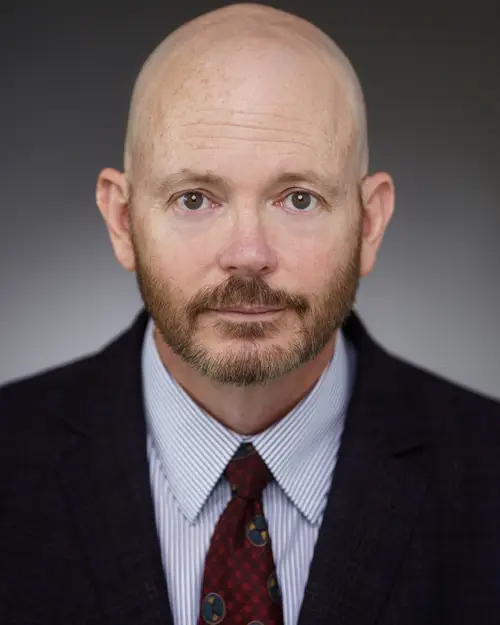
Paul Fisher founded Fisher & Associates P.C. in order to fight for justice and ensure accident victims receive the compensation they deserve. He is licensed to practice law in both the State of Colorado and the United States District Court for the District of Colorado, and focuses on all aspects of personal injury law, including car accidents, motorcycle accidents and insurance bad faith.

